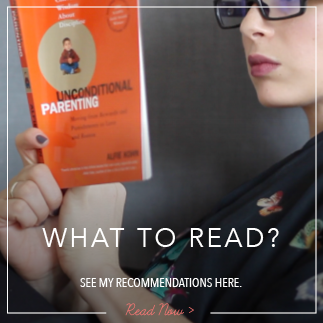Rethinking Fairness – Dr Laura Markham Handles Sibling Rivalry
When you have more than one child, is fairness the goal? Do things need to be fair between siblings? What does it really mean when your child says, “it’s not FAIR!” and what’s the best way to respond to that situation?
I’m so thrilled to have Dr. Laura Markham with me again, along with her lovely daughter Alice. Dr. Laura Markham is a clinical psychologist, dear friend, mom, and author of Peaceful Parents, Happy Siblings.
The Fight for Fairness: Watch on YouTube!
You can watch The Fight for Fairness, a video about sibling dynamics full of role plays and examples to help you tackle sibling rivalry, here!
Watch More Peaceful Parenting in Action!
What to Say When Your Child Wants Fairness!
Here are some tips shared by Dr. Laura Markham and The Parenting Junkie on how to respond when your child feels that life is unfair.
1. Sidestep the Fairness Issue
When you hear the words “It’s not fair!”, try to sidestep the fairness issue and look at the actual reason behind why your child is saying what they’re saying.
Are they saying it’s not fair that their older sibling gets to go on a sleepover? Are they expressing sadness that they don’t get to go to the sleepover as well?
Instead of teaching why the situation is or isn’t fair – if you can focus on the reason why one child isn’t able to do what the other child gets to do, you can begin to empower the child to find a way to make it possible for them in the future.
2. Acknowledge What Feels Unfair
Humans have an innate sense of knowing when they are being treated unfair. Babies, even before they’re verbal, notice whether something is fair or not. We could say, “That really doesn’t feel fair to you. You think that if she has it, you should have it. I hear you.”
3. Sweeten The Pot to Help Kids Fair Better
Some children will fair better once you sweeten the pot a little for them. You can begin by acknowledging that it is hard when one sibling gets to do something that another doesn’t.
It can help to highlight that this circumstance could become something special on its own – whether it’s a movie night with mom, or getting to play a game that the older sibling never wants to play with them.
4. Write it Down Fair and Square!
Children will feel like they are closer to being treated fair and square when you grab a pen and paper. Kids think that writing is magical! There’s documentation, proof, a possibility of justice in the future!
Let’s walk through an example where a sibling gets a new pair of shoes.
“You see that your sister got a new pair of sparkly shoes, and you want a new pair of sparkly shoes too. Let me take a look at your feet. See, your feet are growing but they still fit in these shoes just fine. You’re not quite ready for new shoes yet. You will be ready for new shoes soon. When you’re ready for new shoes, would you like a pair of sparkly ones like that? Would you like to write that down with me so we remember?”
5. Rely on Your Connection
Preventative maintenance is the bottom line for children to accept the inherent injustice that happens with siblings. Your child needs to be able to trust that what you’re saying is true. If you say that “when x happens, you’re going to be able to y,” the child whom you have already established a relationship of trust with can accept what you are saying to be true.
6. Honor Their Grief about the Unfairness
There is a very real feeling of grief for younger, smaller children who aren’t able to keep up with their older siblings. There’s a sense of injustice for the younger child and I think the only thing to do with that unfairness, that grief, is to honor it.
Not in the moment, but at a later, calmer time, it might be that you point out that as the younger child, you get… (to be carried a lot more, a longer story time with daddy before bed, etc.)
Both children will feel injustices and you cannot possibly undo that. All you can do is honor their grief about the unfairness and try and make sure to always hear them.
7. Empowerment Should Be Our Goal
I’m interested in everyone’s needs being met, more than in everyone getting the exact same thing. You’ll often hear me say to my children, “Rather than saying what he got or what you didn’t get, why don’t you ask me for what you want.”
Another thing that I choose to tell my kids is that life isn’t fair. And I don’t think that that’s a problem.
I don’t say“Oh too bad! Life’s not fair!” to disempower our children. But rather, I think it’s fair and reasonable to say, “You’re right. Life isn’t fair – that is the way life is. But your needs will be met and there’s plenty to go around.” This is an empowering message.
And you can even be more explicit about the empowering message by saying, “I wonder what part of this you could change if you chose to?”
Watch More Peaceful Parenting in Action!
Fairness & Fair Treatment of our Children
I would love to hear from you! Has your child reached the stage where they are preoccupied with fairness? What did you find most difficult about handling these situations? Please leave your comments below or over in our (free & awesome) FB community Love Parenting with Avital.
↓ ↓ ↓ ↓ ↓ ↓ ↓ ↓ ↓ ↓








0 comments